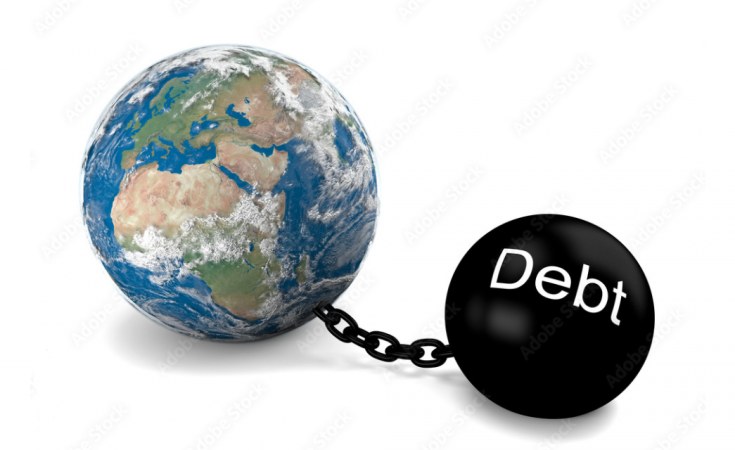THE issue of Zambia's debt restructuring has been dragging for some time now and this forum has been keenly following it since inception, somewhere in 2021.
The issue which goes in tandem with the current International Monetary Fund (IMF) financial support programme has occupied media spaces including that of this column for a long time now.
As stated before, the conclusion of the debt restructuring exercise between Zambia and its official creditors will mark an embodiment of consistency, resilience and foresight of government leaders.
Over a couple of years, the country has had to make a lot of sacrifices to resolve the situation created by heavy borrowing by the previous government administration.
What is important is that the country has covered wider ground than what is remaining in terms of the conditions which have had to be met to clearly attain the restructured-debt level which would be sustainable and not choking to the Zambian economy.
Followers of the country's economic developments and citizens in general will remember the night of June 22-23 this year which will forever be a memorable one as it marked the start of a new economic epoch for the southern African country.
This is considering what was at stake had the negotiations for the debt restructuring exercise completely boggled down.
The Zambian government reached an agreement on a comprehensive debt treatment with its Official Creditors under the Group of 20 (G20) Common Framework.
This landmark achievement was a significant step towards restoring Zambia's long-term debt sustainability.
The agreement entailed Zambia's debt to be rescheduled over more than 20 years with a three-year grace period during which only payments on interest will be required.
The agreement paved the way for the approval by the IMF Executive Board of the first review of the fund-supported programme and allowed for the next tranche of IMF financing of about US$188 million to be disbursed in August.
The deal involved the restructuring of US$6.3 billion in debt Zambia owes other governments including that of China, at $4.1 billion via the Export- Import Bank of China alone.
This process has been painfully slow for Zambia, with some people especially the leaders of the opposition -most of whom contributed to the problem -predicting that it would not materialise.
While a great deal has been achieved, there are still a few steps to be taken to arrive at the final positions.
The next stage, which has stalled for some time now is the signing of the Memorandum of Understanding (MoU) between the Zambian government and its official creditor committee.
The Government has made slow progress in talks since June, when, in principle, it reached a deal with the committee co-chaired by China and France.
The southern African country, which, under the erstwhile regime, was the first African country to default COVID-19 era in 2020, has been working hard to cut a concrete deal with its creditors.
At one time, the IMF could not release the $188-million disbursement following delays in the group agreeing to debt relief and other requests.
There have been some media reports filtering through from the ongoing IMF and World Bank Group (WBG) annual meetings in Morocco indicating that the long-awaited MoU between Zambia and its official creditors could be signed this week.
Bloomberg reports that Zambia's official creditor committee plans to sign the MoU to restructure the $6.3-billion debt by the close of the meeting this week and that two people familiar with the matter said.
When reached, the agreement would see the interest rates cut to as low as one per cent and the loans only repaid in 2043, with a 40 per cent reduction in net-present value of the debt.
Last month, Finance Minister Situmbeko Musokotwane said the copper-rich country will finalise and execute the MoU by the end of the year.
Dr Musokotwane is leading a high-level delegation including Bank of Zambia (BoZ) Governor Denny Kalyalya to the IMF and WBG meetings in Marrakech.
A statement by the ministry announcing the arrival of Dr Musokotwane's delegation in Marrakech on Monday did not give any hint on the MoU but merely itemised the many high-level engagements the team was scheduled to participate in.
But IMF Africa director Abebe Selassie was on Monday quoted as having expressed optimism that Zambia and its official creditors would announce a finalised debt restructuring deal before tomorrow.
"We're very hopeful that the authorities and the creditors will be in a position to make an announcement very, very soon," he told Reuters in an interview on the sidelines of the IMF and WBG annual meetings adding that:
"They've told us that there's been very strong progress, that they're in the last stage of finalising things." The deal is crucial to Zambia's economy especially in the short-term.
The country still needs to reach a restructuring deal with commercial lenders, including the holders of the $3-billion Eurobonds, all who may want to toe the official creditors' line.
Similarly, the outcome of the restructuring exercise has a bearing on the future economic growth level and other economic fundamentals.
In its latest report, Africa's Pulse, Volume 28: October 2023, the WBG states that the MoU with the exact parameters of the treatment with the bilateral creditors is currently being finalised, more than two years after the request.
Zambia, therefore, hopes the issues will be resolved this week to allow the Government to concentrate on rebuilding the economy.
For comments call: 0955 431442, 0977 246099, 0964 742506 or e-mail: jmuyanwa@gmail.com.


